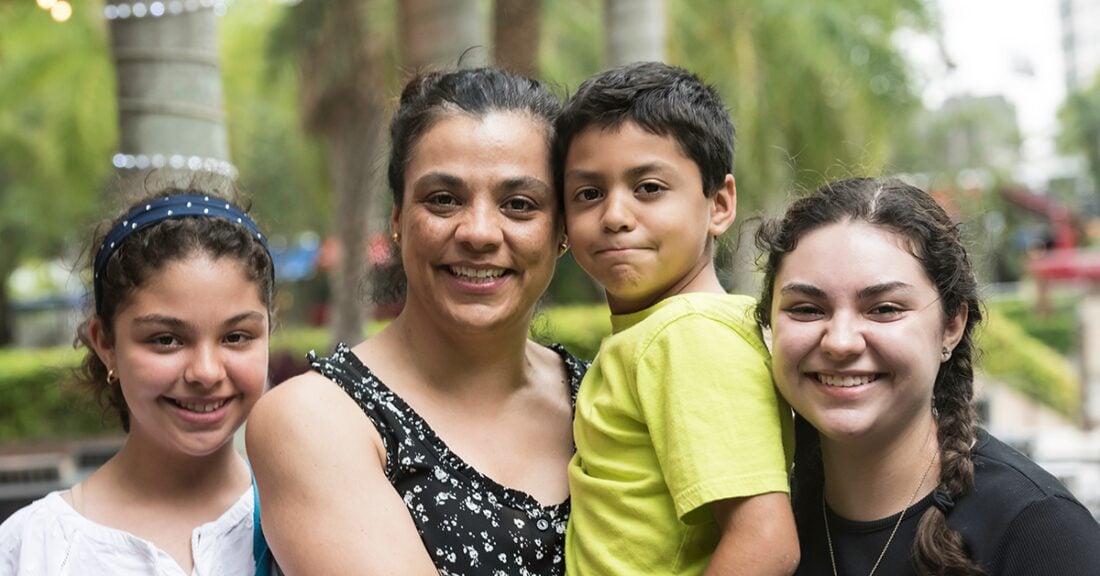Evaluation Shows Promise in Meeting Latino Mental Health Needs in Maryland

A community-led effort to support the mental health of Latino immigrant youth and families has produced promising initial results, according to researchers at the University of Maryland. Funded by the Annie E. Casey Foundation, a preliminary evaluation of Encuentros, a nine-session emotional support program designed by Identity, Inc. and led by facilitators who are members of the community, found that participants were better able to manage mental health challenges and support their children.
“In my 20-plus years of doing community-based program evaluation, what I’ve seen with Encuentros is really like nothing else,” says Amy Lewin, associate professor at the University of Maryland School of Public Health, who, along with her colleague Professor Kevin Roy, is leading the evaluation. “It has become really clear to us from talking with participants that this program is meeting an enormous need in the community.”
Community Connections
Based in Montgomery County, Maryland, where young immigrants from Central America are the fastest growing demographic in public schools, Identity focuses on improving the lives of Latino youth and families in the county’s high-poverty neighborhoods. Forty percent of the young people served by Identity have been separated from one or both of their parents because of immigration issues, with an average length of separation of seven years.
Inspired by the need for community members to help each other at times of emotional distress, Encuentros relies on community strengths and capacities rather than the traditional mental health system. The program enlists community connectors, or promotores, who receive specialized training to facilitate support group sessions and help participants struggling with stress, anxiety and other emotional health challenges. For the year ending in April 2022, Identity hosted 67 Encuentros groups for nearly 670 parents.
The evaluation, which was developed from a long-term collaborative between the University of Maryland researchers, Identity staff and program participants, applies rapid-cycle methodology in which data are used to simultaneously measure the program’s effectiveness and improve it. For example, the number of support group sessions was expanded from six to nine based on participant input from survey data and focus groups.
Encuentros Findings
Participants in the emotional support groups for mothers declared that Encuentros was “deeply impactful and life-changing.” Based on what they learned about dealing with loss, depression and other challenges, these participants noted significant changes in how they interacted with their children and other family members.
Surveys administered before and after participation in Encuentros found increases in the percentage of mothers who said they:
- were doing a good job managing stress in their lives (47% to 81%);
- were able to help friends and family manage stress (61% to 82%); and
- had the skills to take care of their mental and emotional well-being (63% to 84%).
All participants in the fathers’ groups said their experience with Encuentros had been positive. Despite feeling initially apprehensive, most felt that discussing mental health was necessary, evaluators found. Analysis of the data from the fathers’ groups is currently underway.
Better Supporting Youth
The University of Maryland/Identity team now plans to adapt and improve the youth version of Encuentros using the same rapid-cycle evaluation methods. The program will be tested in multiple contexts, including high schools for students ages 14 to 18; a school-based vocational training program for youth ages 18 to 25; and an online format for adolescents whose parents already have participated in Encuentros.
Preliminary focus groups with youth participants revealed an overwhelmingly positive response to Encuentros. Many young people said they were better able to manage their anger and calm down in difficult situations with others.
“Mental health challenges exacerbated by the fallout from the COVID-19 pandemic have increased the need for programs like Encuentros,” says Allison Holmes, a senior research associate with the Foundation. “What I hear from participants in this program is that it has a ripple effect — with positive results not only for the individuals, but also for their relationships with family, friends and community members. The ongoing evaluation of Encuentros will tell us more about how programs that engage young people and families through their communities and cultural backgrounds can lead to better outcomes.”
Read more about young people and mental health in the 2022 KIDS COUNT® Data Book






